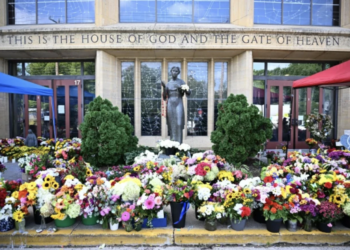This article was first published in Tabletalk, the Bible study magazine of Ligonier Ministries. Find out more at TabletalkMagazine.co.uk or try it free for three months today at TryTabletalk.co.uk.
Stewardship is one of those old words that has largely fallen out of common use in our culture. The reasons for this aren’t hard to imagine. Even as I write, I glance out the window and see a generic shopping centre. Would anyone speak of stewarding such a place?
Maybe a landlord would claim some responsibility for its maintenance, but the language of stewardship feels too weighty, too earnest. It suggests more than mere oversight; it conveys a sense of responsibility not only to preserve but to pursue something higher – something good and beautiful, not just profitable. And that, I suspect, is part of why the word has faded.
Few of us view our lives, our work, or our world through the lens of stewardship. We’re more often governed by the metrics of utility, efficiency, and personal gain. To serve a person, a place, or even a task for its own sake – because it’s good in itself and worthy of care – often feels foreign to our thinking.
















